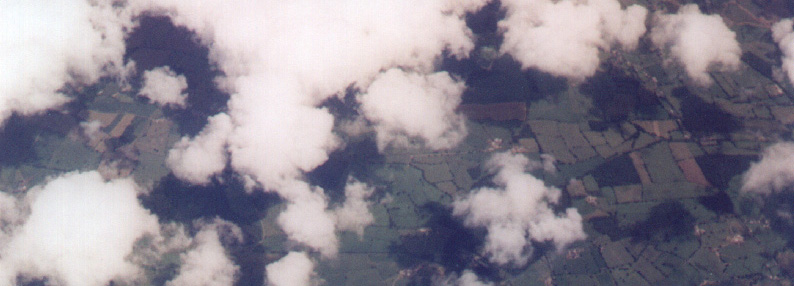
Access to site
authors
by Dr. David Orr
"The four essays. . . attempt to define the scope and depth of the crisis of sustainability."
Chapter One | Current conditions | Chapter Five | Six basic characteristics | Real education
Chapter One
The Problem of Sustainability
page 1.
"the causes of our plight"
- social traps.
- inescapable parts of the human condition.
- fail to penetrate below the surface of things to deeper causes
- we offer aspirin solutions to potentially terminal illnesses"
- a problem rooted in "our assumptions about"
- "science
- nature
- culture, and
- human nature"
p. 1.
"These three crises feed upon each other."
Three crises are looming in the future:
- "food crisis"
- "the end of an era of cheap energy"
- "the looming prospect of a global climate change"
"ecological thresholds and the limits of natural systems"
These three crises– "They are interactive in ways that we cannot fully anticipate."
"We have a decade or two in which we must make unprecedented changes in the way we relate to each other and to nature."
page 3.
Our situation today
Our ecological problems are "unique in its range and scope"
"be adapted to biophysical limits"
"The crisis can be interpreted as a result of one or more social traps;
- "it may stem from flaws in our understanding of the relation between the economy and the earth."
- "it could be a result of the drive to dominate nature evident in our science and technology."
- "can be traced to wrong turns in our evolution"
- "it may be due to sheer human perversity."
p. 4.
Chapter One | Current conditions | Chapter Five | Six basic characteristics | Real education
Causes "deeper ones that become harder to define"
- The social trap of "the Tragedy of the Commons."
- "honest bookkeeping, would deter entry into social traps"
![]() Economic growth (6-11)
Economic growth (6-11)
"The cultivation of mass consumption through advertising promotes the psychology of instant gratification and easy credit, which create pressures that lead to risky technological fixes, perhaps the biggest trap of all."
p. 11.
![]() Urge to dominate nature (11-15)
Urge to dominate nature (11-15)
"inherent in Judaic Christian values."
![]() An evolutionary wrong term (16)
An evolutionary wrong term (16)
"hunters and gatherers are better equipped."
Paul Shepard:
"Contact with earth, soil, wildlife, trees, and animals, he believes, is the substrate that orients adult thought and behavior to life. Without this contact to nature, maturity is spurious, resulting in 'childish adults' with the world's flimsiest identity structure."
"wrestling with the problems of life"
p. 16.
"peaceful societies that were neither matriarchal or patriarchal."
"our alienation from the natural world is unprecedented."
p. 17
![]() the human condition (17)
the human condition (17)
"we are doomed to live in an overwhelmingly tragic and demonic world."
• "echoes of our ancient reptilian brain.
• We are as a species "certainly not planet-broken."
"We are only a part of a larger web of life."
"Bateson's 'double bind' from which there is no purely logical escape."
p. 17.
Chapter One | Current conditions | Chapter Five | Six basic characteristics | Real education
"The crisis of sustainability is without process."
"Economic development has been a largely crisis driven process that occurs when a society outgrows it resource base."
p. 19.
"social breakdown–what ecologists call 'overshoot.'
"Galileo and Adam Smith" symbols of an age, or a bygone era we need to let loose of?
19
". . .it must monitor and restrain human demands against the biosphere. This will require an unprecedented vigilance and the institutionalization of restraints through some combination" of means.
"Reform politics need not concern itself with structural alteration of the economic customs of the society."
The Populist Movement, p. 284.
Chapter One | Current conditions | Chapter Five | Six basic characteristics | Real education
V Ecological Literacy
"the more demanding capacity to observe nature with insight, a merger of landscape and mindscape."
"driven by the sense of wonder."
p. 86
"from conqueror of the land community, to plain member and citizen of it."
Aldo Leopold, p. 90.
"requires increased resource efficiency."
"the public understands the relation between its well-being and the health of natural systems."
p. 90.
Six foundations of ecological literacy education.
- "All education is environmental education."
- "environmental issues are complex and cannot be understood through a single discipline or department." p. 90.
- "education occurs...as a dialogue with a place."
- "The way education occurs is as important as its content"
- "experience in the natural world" p. 91.
- "Enhance the learners competence with natural systems."
![]()
What will people need to know to live responsibly and well?
p. 133
"Ecology has been isolated with in biology departments as though it had little or nothing to do with the social sciences, humanities, or the professions."
134
"striving for harmony with the land"
consciousness of land as Aldo Leopold suggested in the 1940s.
141
"biospheric viewpoint and deep ecologists advocate much more sweeping changes in the human relationship to the natural world...."
141-142
Many thinkers really differ with environmental studies over:
142-44
"there are good precedents for the integration of objectivity with a strong value orientation."
- focus on health not disease
- promotion of peace
- conditions for prosperity
- "knowledge...as a means to human well being."
142
not "passive receptors of information."
"personal wholeness."
"harmony with nature is important"
Other knowledge values --"character, intuition, feeling, practical abilities and intstincts...,"
142
Knowledge,...is biased by the way in which we determine social and economic priorities."
understanding of ecosystems and the human role in nature." requires
"Integrative perceiving" as a new basis for ecological knowledge.
The reason we know so much in certain subjects is the domination of research by commercial corporations: agribusiness and not soil science, pharmaceuticals and not preventive medicine.
143
The learning environment - "the emergence of an integrative science."
"survival issues ... involve whole systems of knowledge and many disciplines."
143-144
"Environmental education is unavoidably political."
"At the heart of the issue is the total demand humans make on the biosphere and the way we have organized the flows of energy, water, material, food, and wastes, which in turn affects what political scientists define as the essential issues of politics: 'Who gets what, when, and how?'"
145
"The symptoms of environmental deterioration are in the domain of the natural sciences,but the causes lie in the realm of the social sciences and humanities."
145-146
Chapter One | Current conditions | Chapter Five | Six basic characteristics | Real education
![]()
Understanding ecological integrity
David Orr Chapter IX | Ecological Literacy Question | Why is ecoliteracy needed
David Bordwell & Kristin Thompson, Film Art: An Introduction.
Chapter One | Current conditions | Chapter Five | Six basic characteristics
Readings


